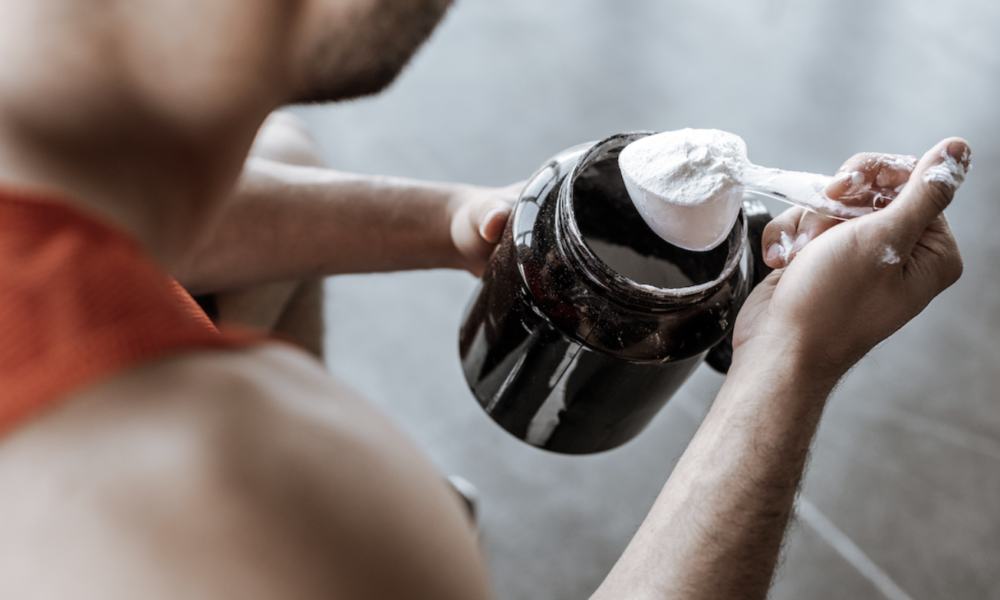

There are lots of things bodybuilders don’t know about vitamins and minerals. If you are working out and keeping the dietary rules to keep fit and build your muscles, you would want to get the best result from your efforts. However, are exercising and diet enough to give you your desired outcome?
The widespread use of vitamins and supplements has been observed among world athletes in various fields. A study published in the Journal of Research in Medical Sciences aimed at estimating the prevalence of supplement use among bodybuilder athletes. The study showed that 49% of the participants declared supplement use and males were more likely to use supplements than females.
Studies have shown that vitamins and muscle-building supplements can enhance physical performance during resistance training, which helps induce muscle growth. Many bodybuilders would benefit from using vitamins and supplements as they advance in their bodybuilding and fitness journey.
Beginners might not utilize supplements until they get to the intermediate and advanced levels. Learn more about the best supplements for bodybuilding, more essential facts about vitamins and minerals, as well as how to identify the best quality supplements/vitamins.
Best supplements for bodybuilding
Listed below are the best supplements and vitamins for bodybuilding and enhanced athletic performance.
- Protein
Protein is essential for bodybuilders. The basic components of proteins are amino acids which support cells, the growth and repair of damaged cells. Not many people get all the required protein from food. Fortunately, they also come in supplement form. Taking protein supplements can assist in increasing muscle strength.
Protein supplements come in different types. The most common ones are casein, whey, and soy protein. Some other protein supplements consist of protein extracted from protein-rich foods like beef, eggs, and chicken.
- Biotin
Biotin plays a vital role in metabolism- conversion of fats, carbohydrates, and proteins to energy. Asides from healthy skin and preventing the hair from turning grey, biotin might help you attain your bodybuilding results. Biotin is available as a supplement. However, some food sources of biotin include almonds, peanut butter, egg yolks, oats, and hazelnuts.
- Creatine
The body produces creatine naturally, and it serves as a source of energy for the muscles and other body tissues. Organs that produce creatine include the liver, kidneys, and pancreas, and it gets stored in the muscles. Studies suggest that creatine plays a role in muscle growth and physical performance.
According to the International Society of Sports Nutrition, creatine monohydrate, which is a common form of creatine, is the best effective supplement for increasing muscle mass and enhancing exercise performance.
Asides from being available as an oral supplement, the creatine supplement is also present in foods, e.g., fish and meat.
- Beta-hydroxy beta-methyl butyrate (HMB)
The body produces HMB whenever it processes leucine, an amino acid. HMB is the key molecule that is responsible for the benefits of leucine and protein in diets. One of the major roles that this molecule plays is that it reduces muscle protein breakdown.
Even though the body produces HMB naturally, taking it as a supplement increases its levels, making for an increased benefit for the muscles. Studies showed that HMB increased lean body mass in previously untrained adults. This shows it might be effective even for those just beginning a weight training program.
- Vitamin C, D, and B12
Vitamin C acts as an effective antioxidant, which helps protect the body from exercise-induced stress. It helps the body to absorb iron and also helps metabolize carbohydrates for fuel.
Vitamin D plays an important role in the absorption of phosphorus and calcium. The muscle needs calcium for its contractions to occur. Phosphorus is needed in the synthesis of ATP. ATP is the body’s useable form of energy.
Vitamin B12 helps convert food into energy and plays an important role in the formation of red blood cells. It also enhances communication between the brain and the muscle cells, thereby improving muscle growth.
Vitamins C, D, and B12 are readily available as supplements. However, they are available in substantial amounts in food sources like citrus fruits, green peppers, broccoli, oily fish, eggs, olive oil, yogurt, meat, milk, eggs, marmite.
- Magnesium
Magnesium is typically found in soft tissues, body fluids, and muscles, where they play vital roles in muscle contraction and in boosting energy levels. Magnesium supplements might help people heal from exercise injuries as it reduces fatigue and muscle cramps.
Vitamins/supplements people should take to heal and prevent athletic injuries

What vitamins or supplements are best for sports injuries? Below is a list of supplements you should consider adding to your diet for exercise or sports-induced injuries.
- Glucosamine
The body produces glucosamine, and it is found in the fluid surrounding the joints. However, taking glucosamine supplements increases its level. This substance is involved in the creation of ligaments, tendons, and cartilages. Taking the supplement might help reduce joint deterioration and pain.
- Zinc
Consuming zinc supplements can help you recover more effectively from an injury as zinc is a component of proteins and enzymes needed for tissue repair, growth, and wound healing.
- Omega-3 fatty acids
The first phase of injury healing is the inflammatory phase. Inflammation is needed for proper healing to take place. However, if inflammation becomes too high for a prolonged period, it can slow down recovery. Omega-3 fatty acids help prevent excess or prolonged inflammation which will aid faster recovery.
- Vitamin C and D
These two vitamins are essential for the regeneration of tissues. While vitamin c helps the body make collagen, vitamin D helps the body absorb calcium which is an important component of the bones. These vitamins play an important role in recovery from muscular, bone, and joint injuries.
- Magnesium
Magnesium helps promote bone firmness and strength. You can take it as a supplement. Its dietary sources include kidney beans, almonds, cashews, lentils, milk, brown rice, and peanuts.
Uncommon facts about vitamins and supplements
Supplements are not meant to replace a healthy diet; however, where your diet falls short, the right supplement can step in and help. Here are some uncommon things most people do not know about vitamins and supplements.
- More dosage doesn’t mean a better result
Just like your regular drugs, supplements also come with the recommended dosage, and it is always better to stick to the dosage, especially as they are meant to supplement and not replace food. Too many supplements or key nutrients can cause problems to your health.
- Third parties test supplements
There are third parties with the responsibility of testing vitamins and supplements for purity, quality, and safety. Many people don’t know this. However, not all supplements do third-party testing. You can check the label of supplements for third-party testing. This will help you make the right decision when shopping for your supplement. A supplement that has been tested will bear on its label, a symbol from the company that carried out the test.
- Each supplement has its direction of usage
Supplements are of different types and, as such, have different ways of using each. When you purchase a supplement, you should pay attention to the direction of use. For instance, some will require that you take it with your first meal in the morning for more effectiveness, while others might not require that you take it at a specified time.
- Supplements act on people in different ways
The human body is different and processes things in different ways. For instance, the way a supplement would work for someone with a deficiency of a nutrient it is supplementing is different from how it would work for another person that doesn’t have a deficiency. A supplement could work great for a bodybuilder and yield a small result for another.
- Supplements could interact with medications
A supplement might be risky when you are under certain medications. Always consult with your doctor before taking any new medications or supplements to ensure there are no counteractions.
How to know the difference between high- and low-quality supplements/vitamins
When it comes to using supplements or vitamins to boost muscle building, there is usually the challenge of “how to choose”. How do you distinguish the ineffective from the effective or the low quality from the high quality?
Because there are different supplements out in the market with different endorsements, each promising to help improve muscle growth, choosing the right quality can be confusing.
First, you must know that building muscle is a gradual process and takes conscious efforts. Pumping supplements will do little or nothing if you don’t stick with proper workout routines.
Asides from exercise and nutrition, other factors that might affect muscle growth include your sleep pattern, lifestyle, and genetic disposition. Even the best quality supplements might not have an immediate or substantial effect on muscle growth and exercise performance. However, they will help.
Here are tips to help you shop quality supplements:
- Check that the supplements contain safe amounts of vitamins and minerals
- Buy products that have been third-party tested
- Check that they are approved by the right agencies such as the FDA
- Most supplements are typically stored in a cool, dry place
- Supplements made of low-quality ingredients like flavors, artificial colors, and additives might not be of high quality
- Supplements that have a Certificate of Analysis (COA) are usually of high-quality
- Check that the source that is selling the product is reputable
- Your doctor or trainer can help you choose the right supplement
Conclusion:
Vitamins and supplements can be a great addition to any workout routine. They can add to maintaining health and accelerating reaching your goals. It’s important to buy quality supplements that don’t contain any banned substances and are certified by third-party organizations.






















You must be logged in to post a comment Login